Serious, complete and of a certain magnitude
On World Opera Day 2025, contemplations on the appeal of drama and opera; and throwback to last year's opera pilgrimage
Picture the scene: at the Royal Ballet and Opera, in the interval between the 2nd and the 3rd acts of a Tosca performance. The middle-aged man turns to me, “Do you come here often?”
“Fairly often, I’d say. What about you?”
“It’s my very first time - thought I’d check out what it’s all about.”
“And how do you like it?”
“Oh…the music and the singing! I don’t know what to say. And two characters are already dead!” (Two and counting, I think to myself.) “I hope Tosca will manage to save Cavaradossi.”
“Well…”
“No, don’t tell me, no spoilers please.”
I felt a pang of envy for my fellow viewer, who was about to experience the shocking end of Tosca. (But I won’t spoil it for you either.)
This exchange reminded me of my Mama’s question decades ago, “What’s the point of watching it over and over again, since you know how it ends?”
These two vignettes sum up the opera experience for ordinary viewers, myself included. I write as an ordinary opera fan with limited musical knowledge and appreciation of technique. I am drawn into the story and the characters, and kept mesmerised through what happens in me as I follow the characters’ tribulations and, ultimately, their fate. (Every time I watch Shakespeare’s Othello I nurture the hope that someone - anyone - will intervene to destroy Iago’s web of deception; that Emilia will speak up earlier; that somehow the drama will not turn into the tragedy I know so well.)
According to Aristotle, tragedy is:
“the imitation of an action that is serious, complete, and of a certain magnitude; in language embellished with each kind of artistic ornament, the several kinds being found in separate parts of the play; in the form of action, not of narrative; through pity and fear effecting the proper purgation [catharsis] of these emotions.”
(transl. S. H. Butcher in 1895 of Aristotle’s Poetics, ca. 335 BC, source here)
Classical Greek tragedies, on which Aristotle based his definition derived their plots from the cycles of ancient Greek myths. These were well-known clusters of stories with predefined ends, so the spoiler element was not a factor for viewers. The audience knew Oedipus Rex’s painful back story as it is gradually revealed through his fatal flaw of arrogance (hubris) and eventually leads to his mother/wife Jocasta’s suicide, his loss of power and kingdom, his blinding himself in rage and going into exile. They knew that the sins of the fathers are visited upon the children: his daughter Antigone at the end of the homonymous play hangs herself, her fiancé Haemon commits suicide and his mother Eurydice follows him in death.
Similarly to the Classical Greek dramatists, opera composers were routinely inspired by the plot of a myth, biblical story, historical event or work of literature, before their musical genius began to ‘clothe’ the story in the music garment that only each composer could conceive and bring into the world.
Take for example Monteverdi’s L’Orfeo: considered the very first opera, the plot is based on the Greek myth of Orpheus and Eurydice (not the same one as in Antigone above). Verdi was a great admirer of Shakespeare and composed Macbeth, Otello and Falstaff based on the plots of his plays; perhaps most famously of all, the plot of La Traviata was inspired by Alexandre Dumas fils’ semi-autobiographical novel La Dame aux Camélias. Puccini was inspired by Abbé Prévost’s novel Manon Lescaut to compose the homonymous opera that became his first great success.
To come back to the original question: since the plot is known, what’s the pull?
For me, many factors are at play: the memorable music and its intricate ‘dance’ with skillful singing; the characters, who, although ‘known’, are somehow experienced as different through the way each actor embodies them; ultimately, the ‘pity’, the ‘fear’, the empathy - all the emotions evoked by the spectacle; on a meta level, the contemplation that, like the opera, the whole of life is but a string of finely-timed, ever-present moments leading to the inevitability of death.
To continue on a lighter note, here follow some photos from last year’s opera pilgrimage in Italy. On this very day (25 October 2024) I visited Verdi’s birthplace in the village of Le Roncole (renamed Roncole Verdi in his honour in the bicentenary of his birth in 2013).
In the afternoon I fan-girled all over Busseto at Verdi’s portaits and images everywhere in Busseto, Terra Verdi: in the hotel lobby…
…in a bakery window…
…in the Erboristeria Verdiana herbal shop.
And finally, a week later, I stood outside the Grand Hotel et de Milan to look up at the window of Room 105, where Maestro Verdi died in 1901.
I then paid a visit to Verdi’s and Giuseppina Strepponi’s graves at the Retirement Home for Musicians in Milan. Leaving behind me the traffic of Piazza Buonarroti, I approached the reception. The kind receptionist showed me the gate to the garden. “Only for a few minutes, ok?”
I nodded and stepped into the other-worldly calm of the inner garden. Notes from a piano floated over the quiet.
The place was alive with smooth, flowing energy. I felt the bliss of the two companions resting next to each other, as they had done in life.
Tears came; I went out to the garden and sat on a bench. This last stop, at Verdi’s resting place, and, in his words, his most lasting legacy, felt like the closure of a perfect, endless circle. The receptionist popped round the garden gate. “Signora?”
I dried my eyes and made my way to the reception.
“Did you feel it too?” she asked me. “That energy…that something you can’t describe.”
******
Have you ever been on a pilgrimage that means a lot to you? What did it feel like?


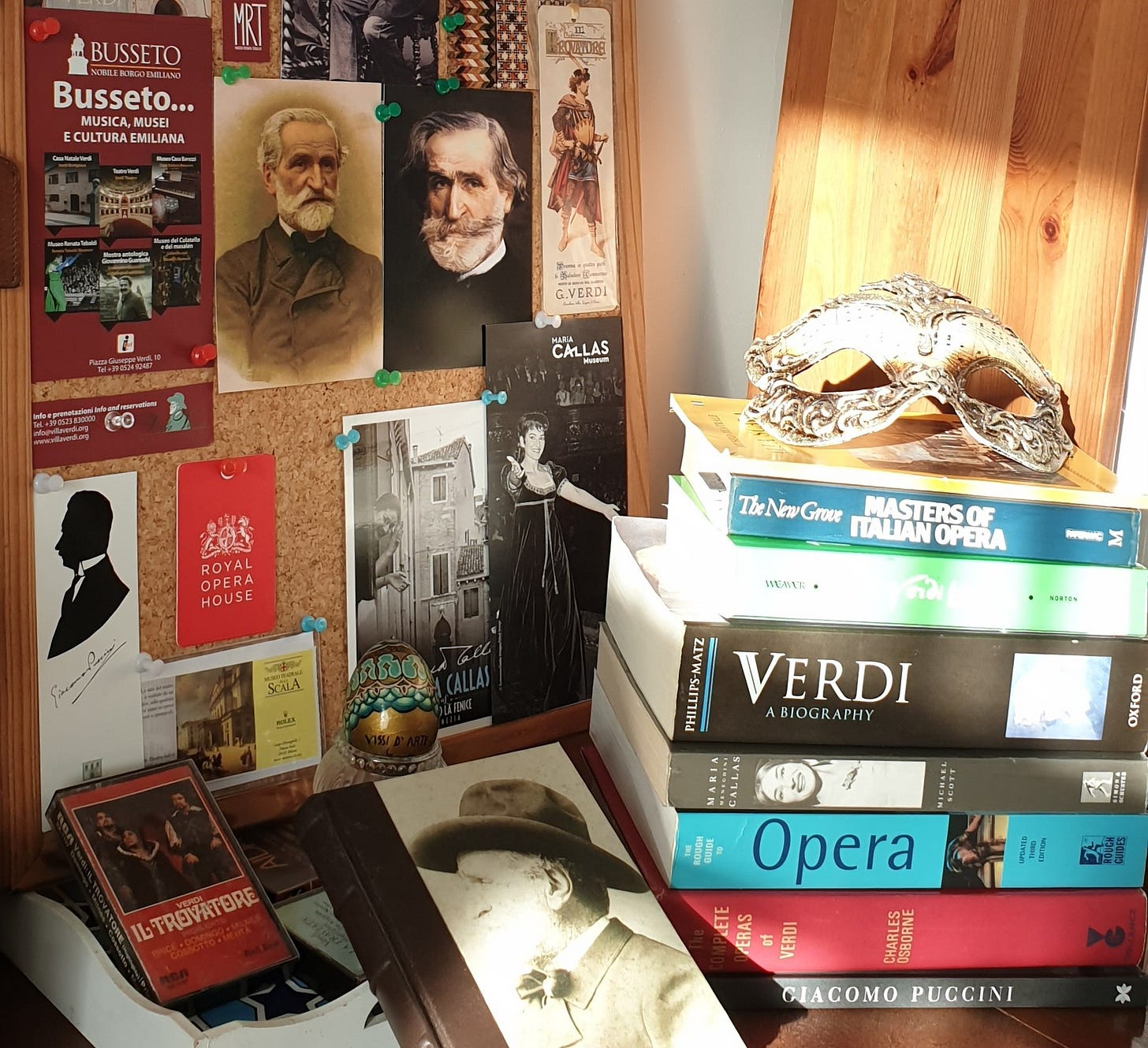
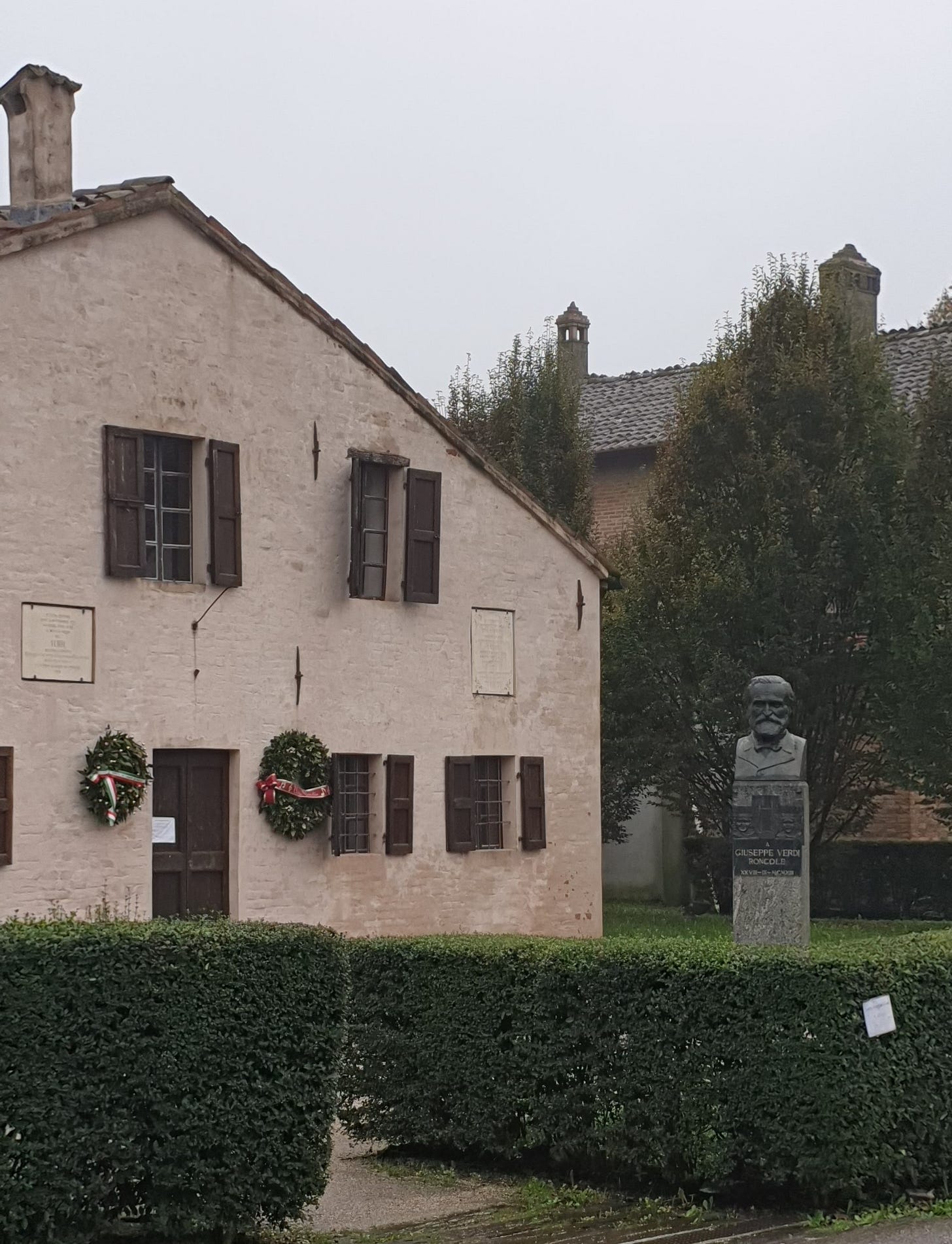
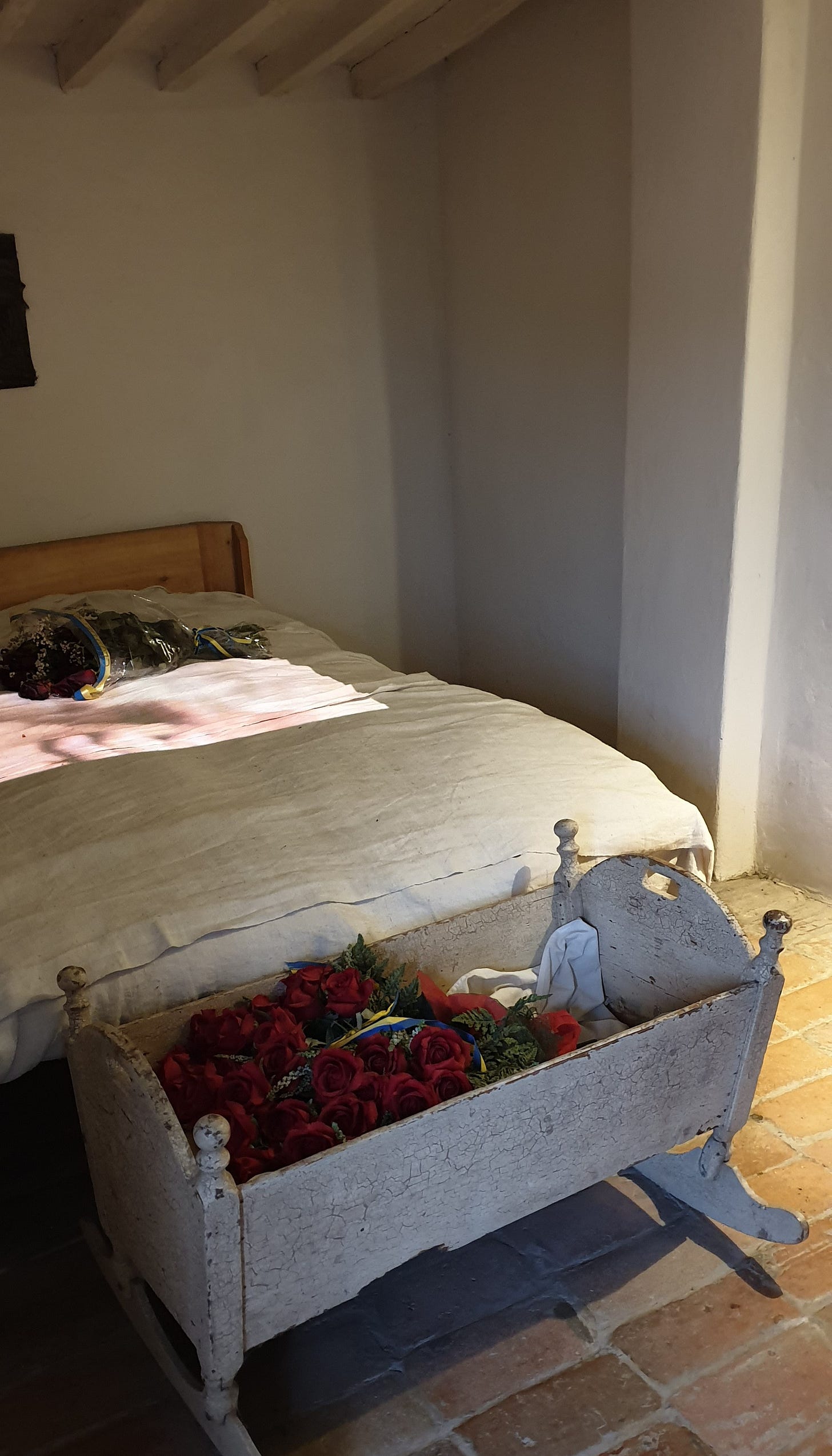
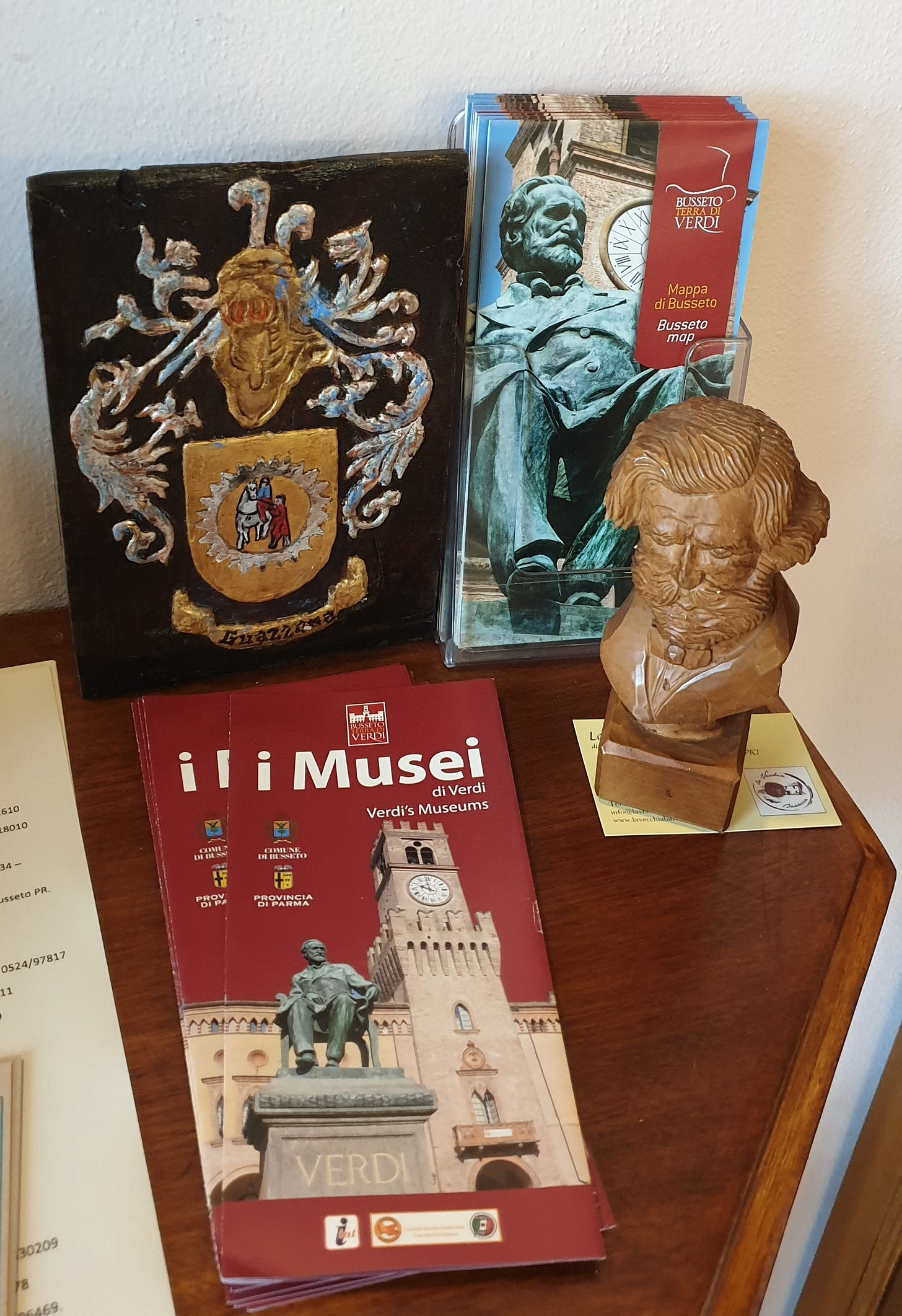
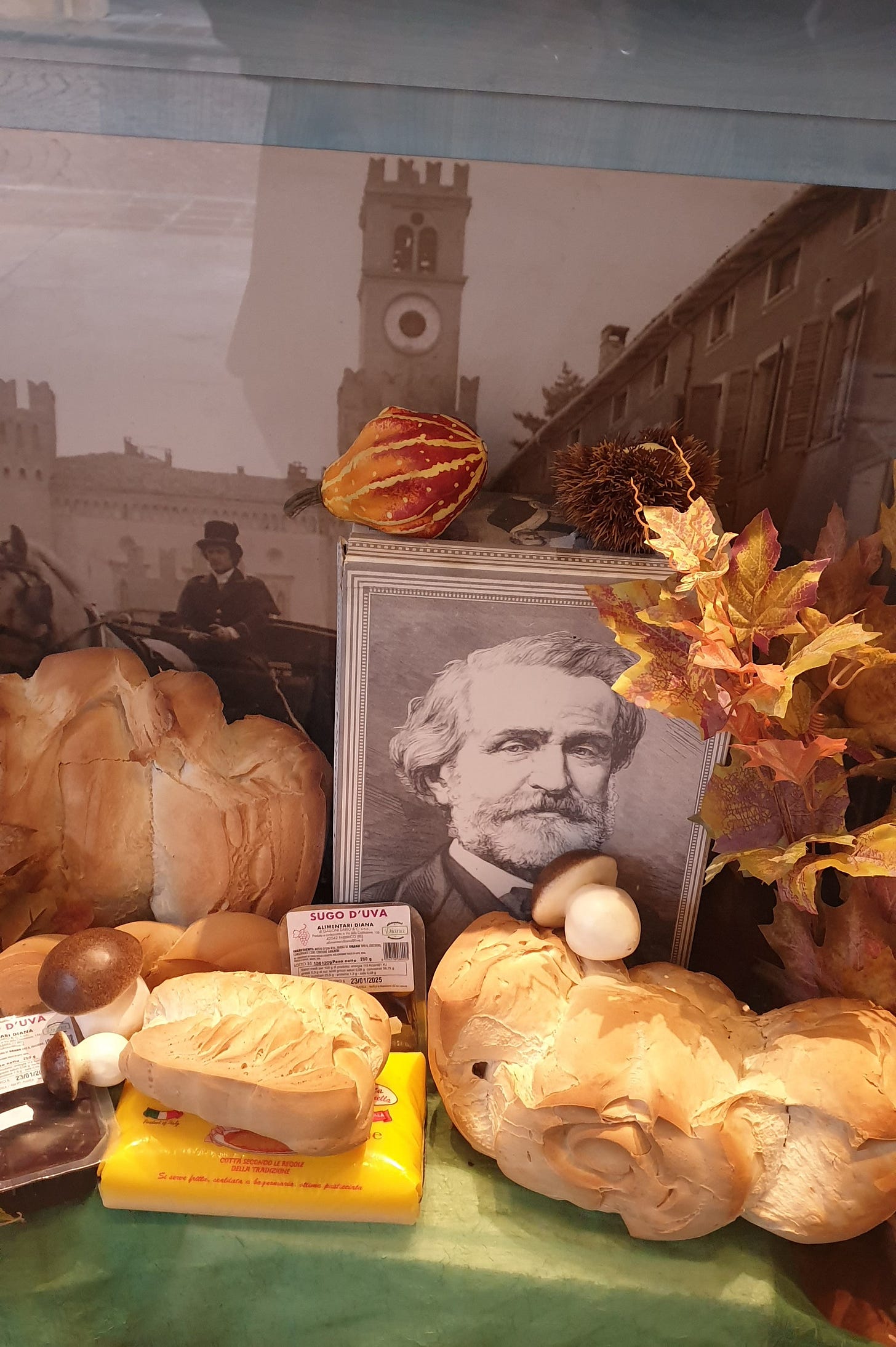
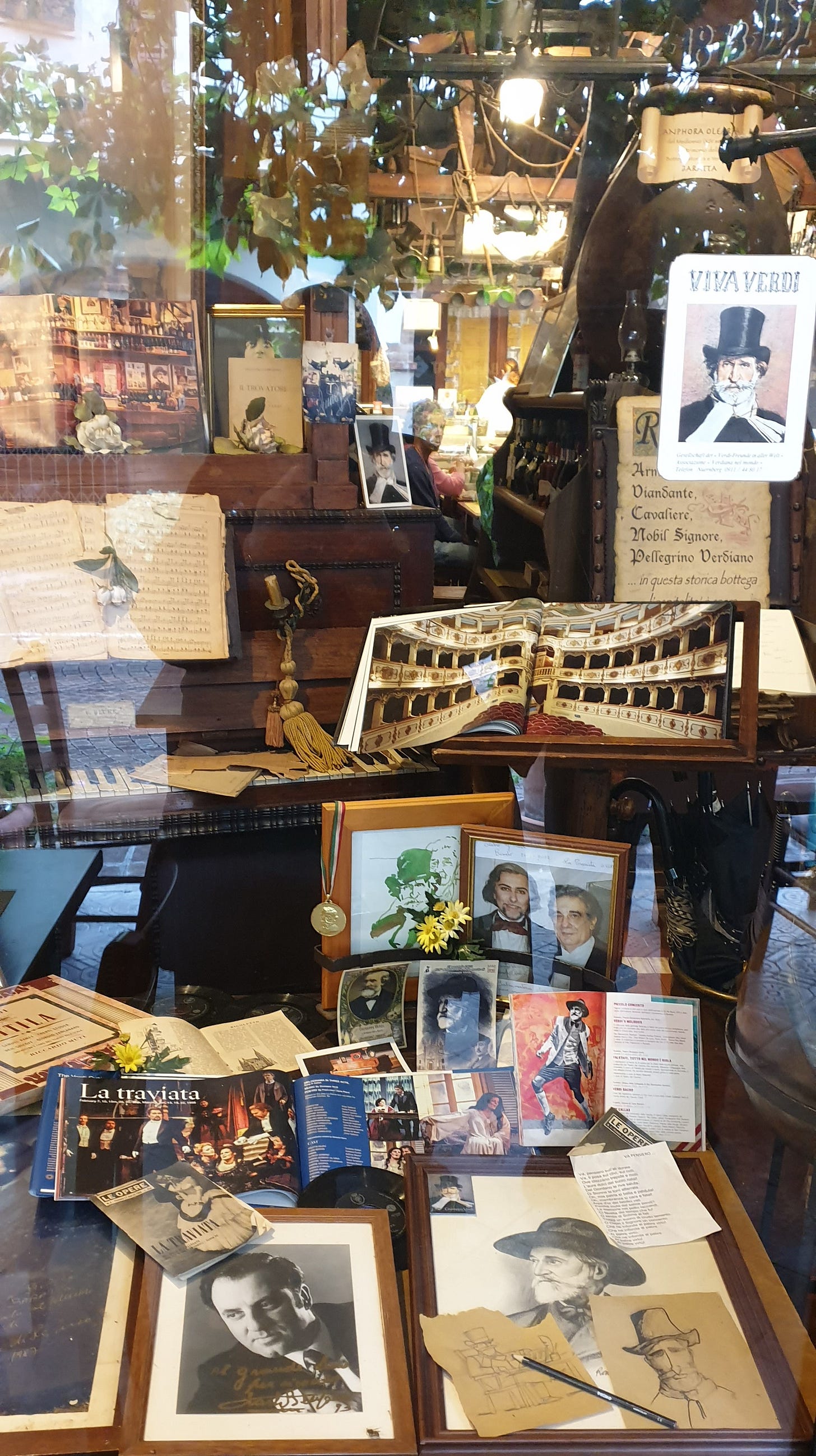
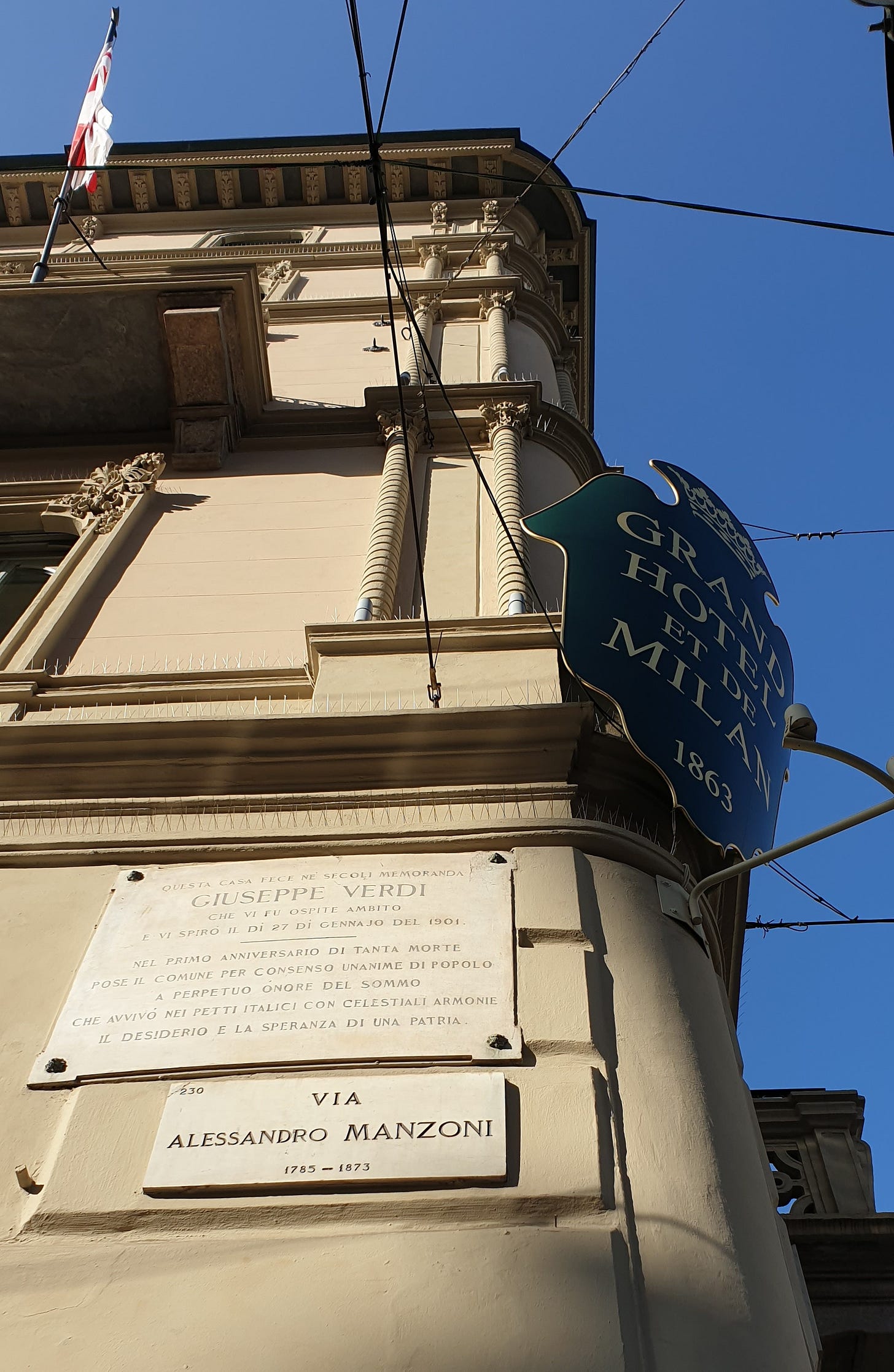
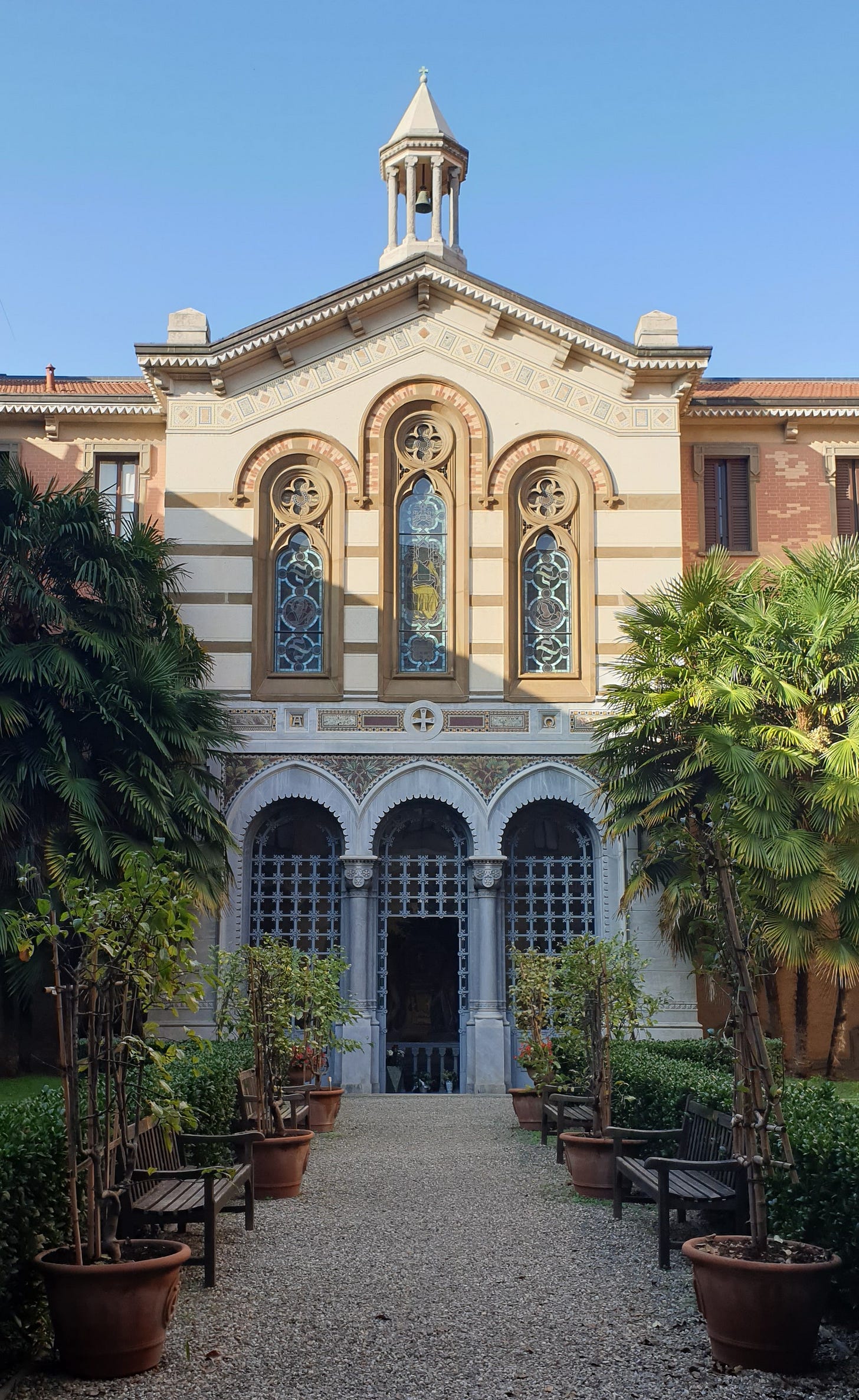
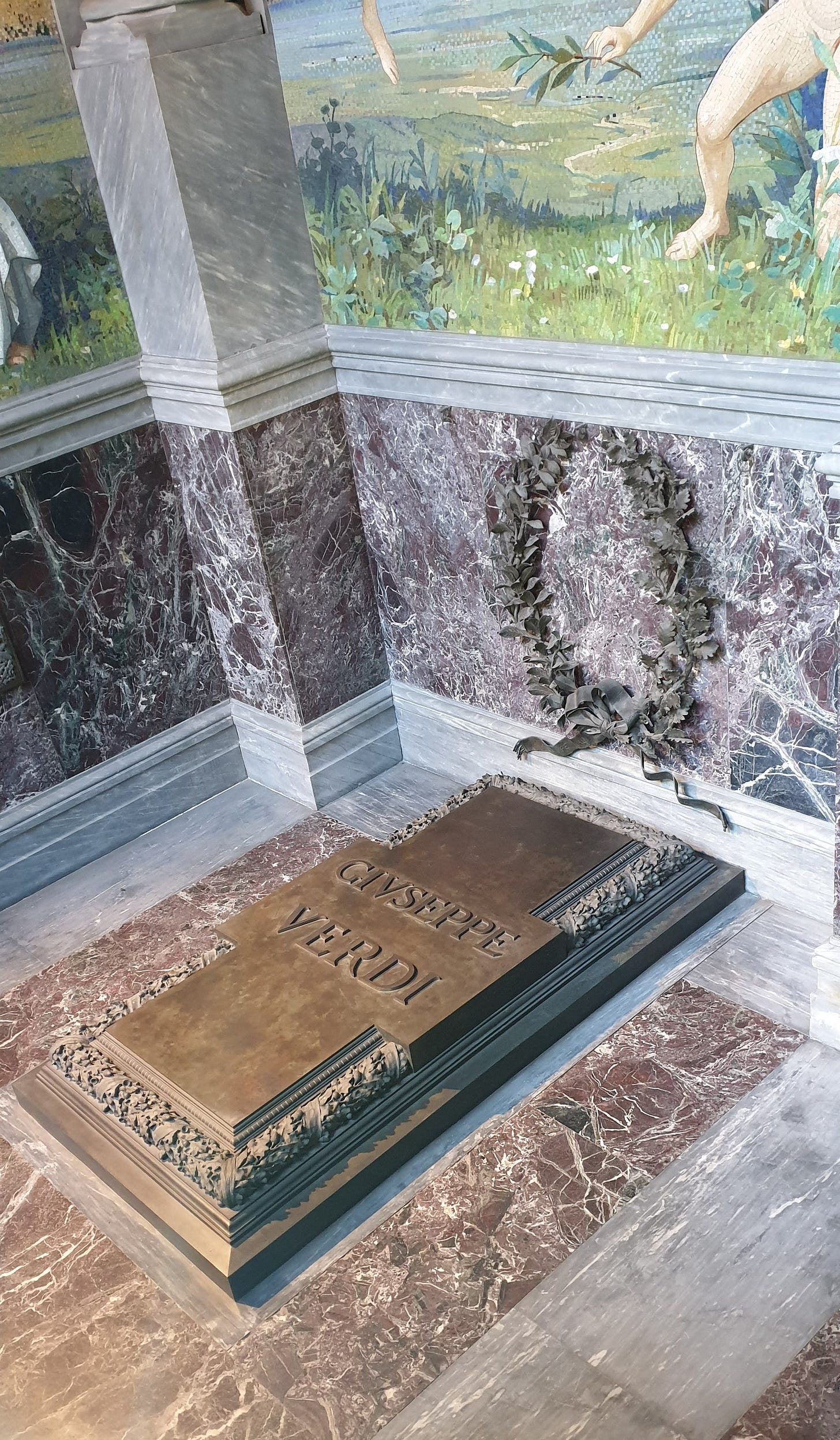
How wonderful to visit those Verdi sites - I've been to the homes of Puccini and Wagner, and there is some quality in the air, or there is if you choose to believe in it! A pilgrimage can mean so many things, as long as it has meaning for the pilgrim - you inspire me to plan a trip Sofia, thank you!
A very good point very well made. I am not a fan of opera, perhaps because I have never really experienced it !
But to revisit a book, a play, a story that you already know the ending to, that can bring deeper emotions into play, ones that we usually avoid in our quest for surprises and momentary thrills. What a shallow life we can lead! And thank you for showing the opposite,